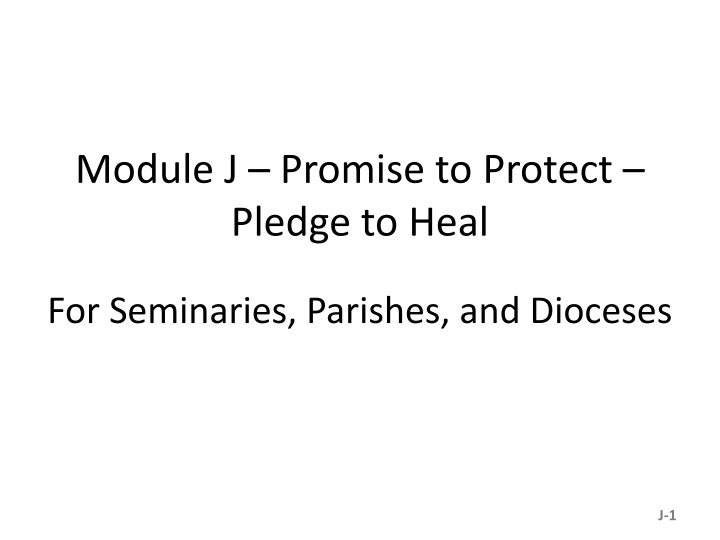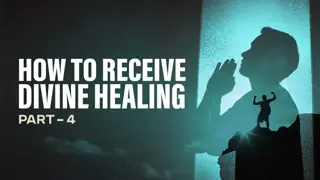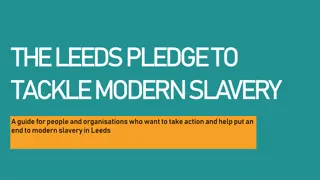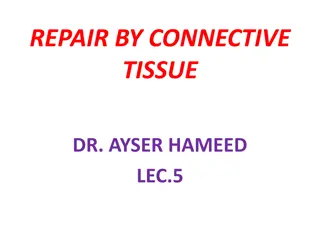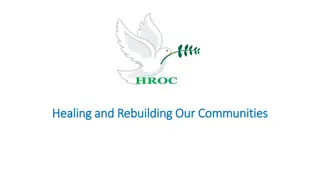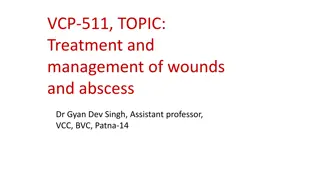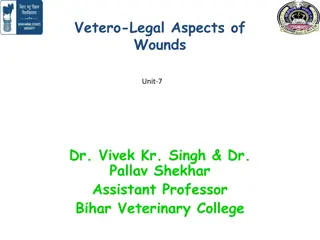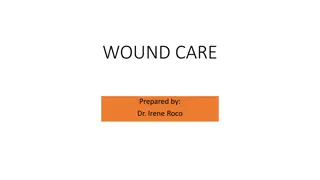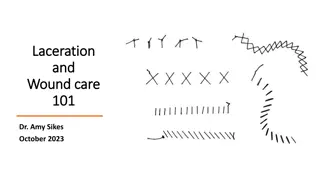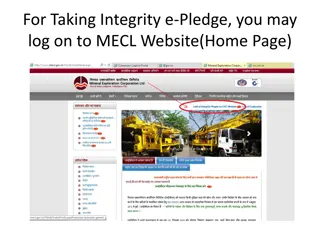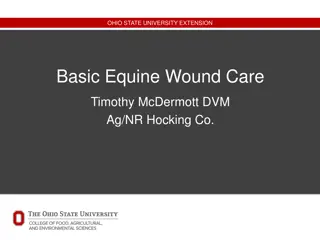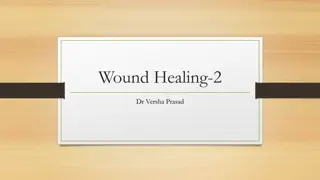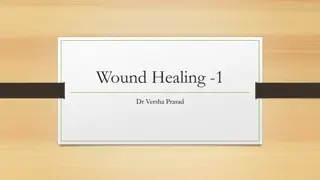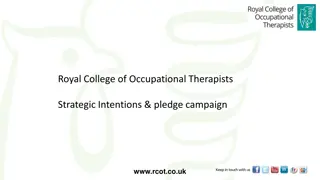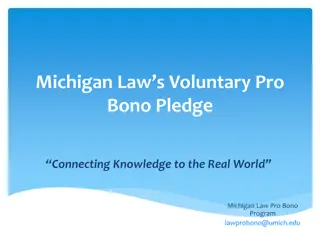Efforts Towards Protecting Children and Healing Wounds - Module J Pledge
The Module J Promise aims to protect children and promote healing in seminaries, parishes, and dioceses through the Charter for the Protection of Children and Young People. The preamble expresses deep regret for past abuses and outlines actions taken, like establishing child protection offices and review boards. Apologies are extended to victims and the community, with a commitment to accountability and reconciliation.
Download Presentation

Please find below an Image/Link to download the presentation.
The content on the website is provided AS IS for your information and personal use only. It may not be sold, licensed, or shared on other websites without obtaining consent from the author.If you encounter any issues during the download, it is possible that the publisher has removed the file from their server.
You are allowed to download the files provided on this website for personal or commercial use, subject to the condition that they are used lawfully. All files are the property of their respective owners.
The content on the website is provided AS IS for your information and personal use only. It may not be sold, licensed, or shared on other websites without obtaining consent from the author.
E N D
Presentation Transcript
Module J Promise to Protect Pledge to Heal For Seminaries, Parishes, and Dioceses J-1
Promise to Protect - Pledge to Heal Charter for the Protection of Children and Young People Essential Norms Statement of Episcopal Commitment J-2
Charter for the Protection of Children and Young People A. Preamble B. To Promote Healing and Reconciliation with Victims/Survivors of Sexual Abuse of Minors C. To Guarantee an Effective Response to Allegations of Sexual Abuse of Minors D. To Ensure the Accountability of Our Procedures E. To Protect the Faithful in the Future F. Conclusion J-3
A. Preamble, 1 The bishops express great sorrow and profound regret for what the Catholic people have endured because of the sexual abuse of children and young people by some deacons, priests, and bishops. The Charter for the Protection of Children and Young People[hereafter Charter] is revised to re- affirm our deep commitment to creating a safe environment. J-4
Preamble: Apologies Offered, 2 Apologies are offered to those affected: Victims of sexual abuse and their families for the damage caused The entire Catholic community The faithful priests and deacons who experience vulnerability to be misunderstood and even the possibility of false accusations J-5
Preamble: Actions to be Taken, 3 Actions to be taken: To continue to work to restore the bonds of trust and unite people To ask for forgiveness for our own (bishops) faults To appeal to all to those who have been victimized, to those who have offended, and to all wounded by this scandal to be reconciled to God and one another J-6
Preamble: Steps Taken, 4 Steps that have been taken to integrate into church life the principles and procedures of the Charter: Establishment of the Office for Child and Youth Protection, which provides the focus for the work and the means to be accountable to the Charter Establishment of the National Review Board, which assists in the assessment of diocesan compliance with the Charter and commissions studies on sexual abuse of minors J-7
Preamble: Steps Taken, 5 Reports presented to the United States Conference of Catholic Bishops by the John Jay College Research Team, The City University of New York* The Causes and Context of Sexual Abuse of Minors by Catholic Priests in the United States, 1950-2010, March, 2011 The Nature and Scope of Sexual Abuse of Minors by Catholic Priests and Deacons in the United States, 1950- 2002, February 2004 * The two reports are based on data supplied by 97 percent of U.S. archdioceses and dioceses on all clergy accused of sexual abuse of minors J-8
Preamble: Steps Taken, 6 Additional steps taken: Victims assistance coordinators put in place to assist dioceses in responding to the pastoral needs of those who have been injured by abuse Diocesan/eparchial review boards put in place to assist bishops in making the decisions needed to fulfill the Charter Safe environment programs put in place to assist parents and children and those who work with children in preventing harm to young people J-9
Preamble: Ongoing Efforts, 7 Ongoing efforts: It seems that the disturbing problem of sexual abuse of minors by clergy has been reduced, but the harmful effects of this abuse continue to be experienced both by victims and by dioceses The revised Charter outlines a series of practical and pastoral steps, which dioceses and eparchies commit themselves to take The Charter re-affirms commitment to: - assist in the healing of those who have been injured - do all in our power to protect children and young people - work with our clergy, religious, and laity to restore trust and harmony in our faith communities J-10
B. To Promote Healing and Reconciliation with Victims/Survivors of Sexual Abuse of Minors, 1 ARTICLE 1. Diocese/eparchies are to reach out to victims/survivors and their families and demonstrate a sincere commitment to their spiritual and emotional well-being; the first obligation of the Church with regard to the victims is for healing and reconciliation. Commitment: to continue outreach to every person who has been the victim of sexual abuse as a minor by anyone in church service, whether the abuse was recent or occurred many years in the past Outreach may include provision of: - counseling - spiritual assistance - support groups - other social services J-11
To Promote Healing and Reconciliation, 2 ARTICLE 1. Further commitment: for the diocesan/eparchial bishop or his representative to offer to meet with victims and their families - to listen with patience and compassion to their experiences and concerns - to share the profound sense of solidarity and concern (Pope John Paul II) J-12
To Promote Healing and Reconciliation, 3 ARTICLE 2. Dioceses/eparchies are to have policies and procedures in place to respond promptly to any allegation where there is reason to believe that sexual abuse of a minor has occurred Commitment: To have a competent person or persons to coordinate assistance for the immediate pastoral care of persons who report having been sexually abused To have readily available procedures for those making a complaint in printed form in the principal languages in which the liturgy is celebrated in the diocese/eparchy and to make them the subject of public announcements at least annually J-13
To Promote Healing and Reconciliation, 4 ARTICLE 2 Further commitment: to have a review board that functions as a confidential consultative body to the bishop/eparch the majority of its members are to be lay persons not in the employ of the diocese/eparchy the board is to advise the diocesan/eparchial bishop in his assessment of allegations of sexual abuse of minors and in his determination of a cleric s suitability for ministry the board is to review diocesan/eparchial policies and procedures for dealing with sexual abuse of minors J-14
To Promote Healing and Reconciliation, 5 ARTICLE 3. Dioceses/eparchies are not to enter into settlements which bind the parties to confidentiality unless the victim/survivor requests confidentiality and this request is noted in the text of the agreement J-15
C. To Guarantee an Effective Response to Allegations of Sexual Abuse of Minors ARTICLE 4. Dioceses/eparchies are to report an allegation of sexual abuse of a person who is a minor to the public authorities Commitment: To comply with all applicable civil laws To cooperate with civil authorities in their investigation, even when the person is no longer a minor To advise victims of their right to make a report to public authorities and support this right J-16
To Guarantee an Effective Response, 2 ARTICLE 5. Bishops affirm, There is no place in the priesthood or religious life for those who would harm the young. (Pope John Paul II, Address to U.S. Cardinals and Conference Officers) Sexual abuse of a minor is also a crime in all civil jurisdictions in the U. S. Sexual abuse of a minor by a cleric is a crime in the universal law of the Church Commitment: Diocesan/eparchial policy is to provide that for even a single act of sexual abuse of a minor whenever it occurred which is admitted or established after an appropriate process in accord with canon law, the offending priest or deacon is to be permanently removed from ministry and, if warranted, dismissed from the clerical state. J-17
To Guarantee an Effective Response, 3 ARTICLE 5 Further commitment: An offending priest or deacon: is to be offered therapeutic professional assistance is to be accorded the presumption of innocence during the investigation of the allegation and all appropriate steps are to be taken to protect his reputation If the allegation is deemed not substantiated, every step possible is to be taken to restore his good name, should it have been harmed. J-18
To Guarantee an Effective Response, 4 ARTICLE 6. Diocesan/eparchial standards of ministerial behavior and appropriate boundaries are to be clear and well publicized These standards are for clergy and for any other paid personnel and for volunteers of the Church in positions of trust who have regular contact with children and young people J-19
To Guarantee an Effective Response, 5 ARTICLE 7. Dioceses/eparchies are to be open and transparent in communicating with the public about sexual abuse of minors by clergy within the confines of respect for the privacy and the reputation of the individuals involved to inform parish and other church communities directly affected by the sexual abuse of a minor J-20
D. To Ensure the Accountability of Our Procedures ARTICLE 8. The Committee for the Protection of Children and Young People is constituted by the bishops (formerly the Ad Hoc Committee on Sexual Abuse) Membership: is to include representation from all episcopal regions of the country is to advise the USCCB on all matters related to child and youth protection is to oversee the development of the plans, programs, and budget of the Secretariat of Child and Youth Protection is to provide the USCCB with comprehensive planning and recommendations concerning child and youth protection J-21
To Ensure Accountability of Procedures, 2 ARTICLE 9. The Secretariat for Child and Youth Protection is to staff the Committee for the Protection of Children and Young People The Secretariat is to be a resource for dioceses/eparchies for the implementation of safe environment programs to produce an annual public report on the progress made in implementing and maintaining the standards in this Charter J-22
To Ensure Accountability of Procedures, 3 ARTICLE 10. The whole Church, especially the laity, at both the diocesan and national levels, needs to be engaged in maintaining safe environments in the Church for children and young people. The Committee for the Protection of Children and Young People is to be assisted by the National Review Board. The National Review Board will: review the annual the annual report of the Secretariat of Child and Youth Protection advise the Conference President on future board members offer advice on matters of child and youth protection, specifically on policies and best practices review the work of the Secretariat of Child and Youth Protection and make recommendations to the Director assist the Director in the development of resources for dioceses J-23
To Ensure Accountability of Procedures, 4 ARTICLE 11. The President of the Conference is to inform the Holy See of this revised Charter to indicate the manner in which the Catholic bishops, together with the entire Church in the United States, intend to continue the commitment to protect children and young people The President is also to share with the Holy See the annual reports on the implementation of the Charter J-24
E. To Protect the Faithful in the Future ARTICLE 12. Dioceses/eparchies are to maintain safe environment programs which the diocesan/eparchial bishop deems to be in accord with Catholic moral principles Commitment: Programs are to be conducted cooperatively with parents, civil authorities, educators, and community organizations to provide education and training for children, youth, parents, ministers, educators, volunteers, and others about ways to make and maintain a safe environment for children and young people. J-25
To Protect the Faithful in the Future, 2 ARTICLE 13. Dioceses/eparchies are to evaluate the background of those who have contact with minors Commitment: Evaluation is to include all incardinated and non-incardinated priests and deacons all diocesan/eparchial and parish/school or other paid personnel and volunteers They are to employ adequate screening and evaluative techniques in deciding the fitness of candidates for ordination. J-26
To Protect the Faithful in the Future, 3 ARTICLE 14. Transfers of clergy who have committed an act of sexual abuse against a minor for residence, including retirement, shall be as in accord with Norm 12 of the Essential Norms (Norm 12. Essentially requires full disclosure regarding any transfers. See J-40) J-27
To Protect the Faithful in the Future, 4 ARTICLE 15. Collaboration and mutuality with the Conference of Major Superiors of Men (CMSM) to protect children and young people is to be ensured Commitment: To be achieved by having two representatives of the CMSM serve as consultants to the Committee for the Protection of Children and Young People diocesan/eparchial bishops and major superiors or their delegates meet periodically to coordinate their roles J-28
To Protect the Faithful in the Future, 5 ARTICLE 16. Given the extent of the problem of the sexual abuse of minors in our society, we are willing to cooperate with other churches and ecclesial communities, other religious bodies, institutions of learning, and other interested organizations in conducting research in this area J-29
To Protect the Faithful in the Future, 6 ARTICLE 17. We commit ourselves to work individually in our dioceses/eparchies and together as a Conference, through the appropriate committees, to strengthen our programs both for initial priestly formation and for the ongoing formation of priests Bishops and eparchs commit themselves to work as one with brother priests and deacons to foster reconciliation among all people in our dioceses/eparchies, especially with those individuals who were themselves abused and the communities that have suffered because of the sexual abuse of minors that occurred in their midst. J-30
F. Conclusion Bishops wish to reaffirm once again that the vast majority of priests and deacons serve their people faithfully and that they have the esteem and affection of their people. They also have love and esteem and commitment to their good names and well-being. An essential means of dealing with the crisis is prayer for healing and reconciliation, and acts of reparation for the grave offense to God and the deep wound inflicted upon his holy people. J-31
Conclusion, 2 It is with reliance on prayer and penance that Bishops renew the pledges made in the original Charter: We pledge most solemnly to one another and to you, God s people, that we will work to our utmost for the protection of children and youth. We pledge that we will devote to this goal the resources and personnel necessary to accomplish it. We pledge that we will do our best to ordain to the priesthood and put into positions of trust only those who share this commitment to protecting children and youth. We pledge that we will work toward healing and reconciliation for those sexually abused by clerics. J-32
Essential Norms for Diocesan/Eparchial Policies Dealing with Allegations of Sexual Abuse of Minors by Priests or Deacons J-33
Essential Norms Preamble to Norms: To ensure that each diocese/eparchy in the United States of America will have procedures in place to respond promptly to all allegations of sexual abuse of minors, the United States Conference of Catholic Bishops decrees these norms for diocesan/eparchial policies dealing with allegations of sexual abuse of minors by diocesan and religious priests or deacons. J-34
Essential Norms, 2 1.These Essential Norms have been granted recognitio by the Holy See. 2.Each diocese/eparchy will have a written policy on the sexual abuse of minors by priests and deacons, as well as by other church personnel, which is to comply fully with canon law. 3.Each diocese/eparchy will designate a competent person to coordinate assistance for the immediate pastoral care of persons who claim to have been sexually abused when they were minors by priests or deacons. J-35
Essential Norms, 3 4. To assist diocesan/eparchial bishops, each diocese/eparchy will also have a review board which will function as a confidential consultative body to the bishop/eparch in discharging his responsibilities. 5. The review board, established by the diocesan/ eparchial bishop, will be composed of at least five persons of outstanding integrity and good judgment in full communion with the Church. J-36
Essential Norms, 4 6. When an allegation of sexual abuse of a minor by a priest or deacon is received, a preliminary investigation in accordance with canon law will be initiated and conducted promptly and objectively. 7. The alleged offender may be requested to seek, and may be urged voluntarily to comply with, an appropriate medical and psychological evaluation at a facility mutually acceptable to the diocese/ eparchy and to the accused. J-37
Essential Norms, 5 8. When even a single act of sexual abuse by a priest or deacon is admitted or is established after an appropriate process in accord with canon law, the offending priest or deacon will be removed permanently from ecclesiastical ministry, not excluding dismissal from the clerical state, if the case so warrants. 9. At all times, the diocesan bishop/eparch has the executive power of governance, within the parameters of the universal law of the Church, through an administrative act, to remove an offending cleric from office, to remove or restrict his faculties, and to limit his exercise of priestly ministry. J-38
Essential Norms, 6 10. The priest or deacon may at any time request a dispensation from the obligations of the clerical state. In exceptional cases, the bishop/eparch may request of the Holy Father the dismissal of the priest or deacon from the clerical state ex officio, even without the consent of the priest or deacon. 11. The diocese/eparchy will comply with all applicable civil laws with respect to the reporting of allegations of sexual abuse of minors to civil authorities and will cooperate in their investigation. J-39
Essential Norms, 7 12. No priest or deacon who has committed an act of sexual abuse of a minor may be transferred for a ministerial assignment in another diocese/eparchy. 13. Care will always be taken to protect the rights of all parties involved, particularly those of the person claiming to have been sexually abused and of the person against whom the charge has been made. When an accusation has been shown to be unfounded, every step possible will be taken to restore the good name of the person falsely accused. J-40
A Statement of Episcopal Commitment The bishops pledge: 1. To assist each other to interpret correctly and implement the Charter for the Protection of Children and Young People, always respecting Church law and striving to reflect the Gospel. 2. The requirements of the Charter apply to bishops, respecting always Church law. If a bishop is accused of the sexual abuse of a minor, the bishop is obliged to inform the Apostolic Nuncio. 3. In cases of financial demands for settlements involving allegations of any sexual misconduct by a bishop, he, or any of us who become aware of it, is obliged to inform the Apostolic Nuncio. 4. To engage in ongoing mutual reflection upon our commitment to holiness of life and upon the exercise of our episcopal ministry. J-41
Prepared by: Sister Katarina Schuth, O.S.F., St. Paul Seminary School of Divinity, University of St. Thomas Technical Associate: Catherine Slight Consultants: Dr. Karen Terry and Margaret Smith, John Jay College of Criminal Justice, authors of major studies on sexual abuse for the USCCB; Dr. Mary Gautier, Center for Applied Research in the Apostolate J-42
